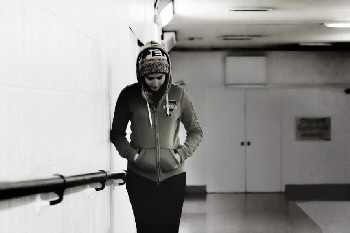|
Merseyside University teams up with charity to help tackle abuse in sport

A Merseyside University and a national charity have joined forces with
European partners in a unique research project to help tackle child sexual
exploitation in sport across the continent.
Edge Hill University is partnering with the charity, the National Working Group
(NWG), in the VOICE project which aims to raise awareness of sexual abuse in
sport and produce a consistent approach to identifying and tackling it.
The research comes at a time of widespread publicity over child sexual abuse in
football, along with an increase in the number of victims coming forward with
allegations of non recent abuse in sport.
Edge Hill, which over the past 15 years has become a research specialist centre
in child maltreatment in sport, is leading the UK research with partnership from
NWG and UK Coaching.
The 2 year VOICE project, funded with a near ₤500,000 EU grant from the
Erasmus+ Programme 2015, is the brainchild of Dr Mike Hartill, Reader in the
sociology of sport at Edge Hill, who is also helping the current FA inquiry into
sex abuse allegations in football. Edge Hill has joined with Universities in:- Germany, Spain, Belgium, Denmark,
Austria and Slovenia to generate crucial and powerful research data on sexual
violence in sport by recording evidence from those affected by it.
The victims' recorded accounts are central to the VOICE project and will help
sports organisations to develop a deeper understanding of the problem and an
opportunity to prevent it within their own areas.
The project steering committee includes Spain's former Olympic gymnast Gloria Viseras who has previously spoken out about her childhood experiences of sexual
abuse within sport. "Our aim through the interviews has been to collect in depth life
histories and use them to develop authentic, practical educational resources.
These can then be used by sports organisations, clubs, coaches and volunteers to
raise awareness about sexual violence and exploitation. The scale of the project
also means that we can get out consistent messages to the sports community
beyond the UK." said Dr Hartill.
NWG, which is at the heart of the UK's response to child sexual exploitation (CSE)
and trafficking, is supporting individual victims who have been part of the
VOICE project, as well as offering its wider experience and consistency in
dealing with the issue.
Kevin Murphy, NWG's Response Unit lead on CSE in sport, said abuse in sport
needs tackling at a lot of different levels but it is important to make people
aware of how it happens; and not for people to just deny that it happens.
"Awareness needs to be all the way down from national level, local level
right down to those who play sport in the park..." said Mr Murphy.
All European partner countries have held seminars giving abuse victims the
chance to talk to audiences of sports sector professionals about how they
suffered; as well as how it was dealt with.
The UK event, organised by NWG, was held in Nottingham and among the responses
from the speakers was:- "The experience has actually helped me change and
develop."
Dr Hartill said victims' experiences in sport have not previously been
sufficiently included in abuse prevention policies and education strategies.
"We need to hear much more about the realities of abuse and ensure victims'
stories are not whitewashed from the picture. Those professionals attending the
VOICE seminars and forums learnt more about child sexual abuse in those few
hours than they have from their normal training. The personal stories they heard
will stay with them forever because they were so powerful and effective."
The next step in the VOICE project, which finishes in June 2018, is to
develop educational resources which potentially will include:- audio visual
material, film, animation and booklets. "We're particularly keen on reaching a younger audience, and the resources
will also be aimed at sports specialists, the professionals and their
organisations. We want to bring some of the
reality of these experiences into the public domain." said Dr Hartill.
The project is also aimed at others who are struggling to cope with their own
experiences, especially those that may not recognise that they are being
subjected to sexual exploitation.
He says sports bodies had in the past shied away from acknowledging sexual
violence in sport, and had not been proactive in working with the survivors of
that abuse. The VOICE project was changing that by prioritising the views and
personal histories of survivors.
NWG's Kevin Murphy said it was important having people trained and competent in
recognising what abuse in sport is. Murphy added:- "It is all about having an open and
honest culture so if something isn't right it is easily identifiable. A lot of the children themselves won't
tell, so it is all about the coaches and parents being aware of the signs."
Mr Murphy said abuse in sport often had a long term effect on individuals who
might bottle it up and then, 10 to 15 years later when it finally comes out,
experience an outpouring of grief and emotion.
The culture of sport can often be part of the problem because it is not always
conducive to speaking out about problems; coupled with the extreme sensitivity
and stigma attached to sexual victimisation. Murphy commented:- "We ask ourselves what damage that abuse has done to the person through
that time and how it has affected their lives and their ability to participate
in sport or society... It can be like dropping a penny in a puddle; the
ripple effect can reverberate very wide for generations."
|
